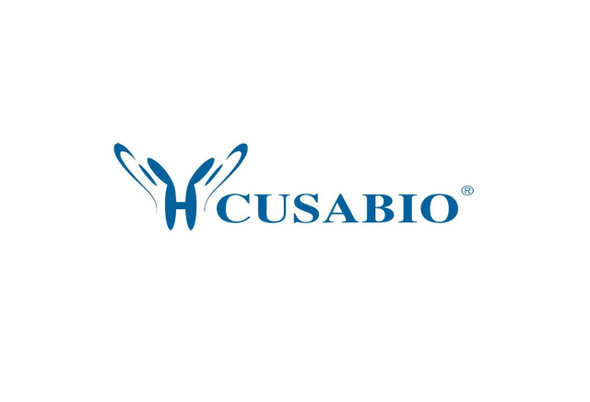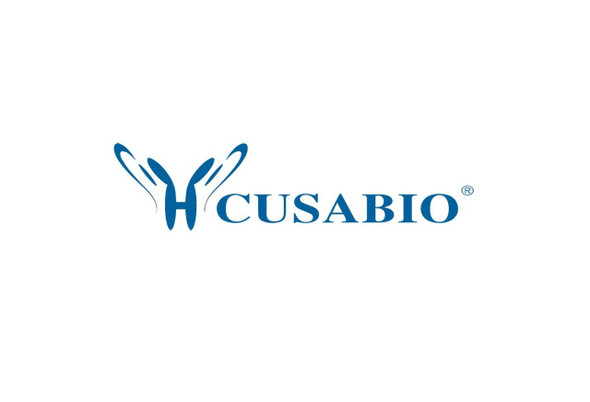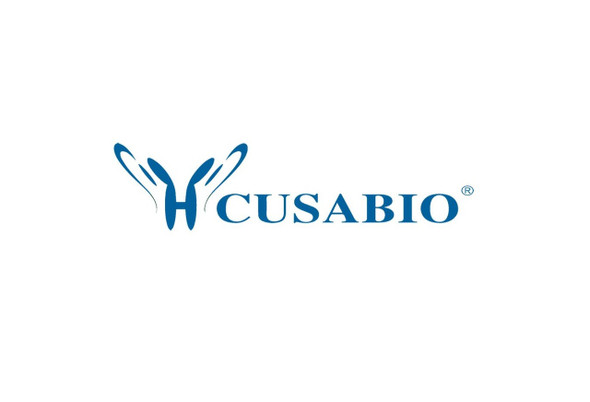Cusabio Human Recombinants
Recombinant Human Importin subunit alpha-5 (KPNA1), partial | CSB-EP012483HU1
- SKU:
- CSB-EP012483HU1
- Availability:
- 3 - 7 Working Days
Description
Recombinant Human Importin subunit alpha-5 (KPNA1), partial | CSB-EP012483HU1 | Cusabio
Alternative Name(s): Karyopherin subunit alpha-2RAG cohort protein 1SRP1-alpha
Gene Names: KPNA1
Research Areas: Immunology
Organism: Homo sapiens (Human)
AA Sequence: NFRLKSYKNKSLNPDEMRRRREEEGLQLRKQKREEQLFKRRNVATAEEETEEEVMSDGGFHEAQISNMEMAPGGVITSDMIEMIFSKSPEQQLSATQKFRKLLSKEPNPPIDEVISTPGVVARFVEFLKRKENCTLQFESAWVLTNIASGNSLQTRIVIQAGAVPIFIELLSSEFEDVQEQAVWALGNIAGDSTMCRDYVLDCNILPPLLQLFSKQNRLTMTRNAVWALSNLCRGKSPPPEFAKVSPCLNVLSWLLFVSDTDVLADACWALSYLSDGPNDKIQAVIDAGVCRRLVELLMHNDYKVVSPALRAVGNIVTGDDIQTQVILNCSALQSLLHLLSSPKESIKKEACWTISNITAGNRAQIQTVIDANIFPALISILQTAEFRTRKEAAWAITNATSGGSAEQIKYLVELGCIKPLCDLLTVMDSKIVQVALNGLENILRLGEQEAKRNGTGINPYCALIEEAYGLDKIEFLQSHENQEIYQKAFDLIEHYFGTEDEDSSIAPQVDLNQQQYIFQQCEAPMEGFQL
Source: E.coli
Tag Info: N-terminal 6xHis-tagged
Expression Region: 8-538aa
Sequence Info: Partial
MW: 63.5 kDa
Purity: Greater than 90% as determined by SDS-PAGE.
Relevance: Functions in nuclear protein import as an adapter protein for nuclear receptor KPNB1. Binds specifically and directly to substrates containing either a simple or bipartite NLS motif. Docking of the importin/substrate complex to the nuclear pore complex (NPC) is mediated by KPNB1 through binding to nucleoporin FxFG repeats and the complex is subsequently translocated through the pore by an energy requiring, Ran-dependent mechanism. At the nucleoplasmic side of the NPC, Ran binds to importin-beta and the three components separate and importin-alpha and -beta are re-exported from the nucleus to the cytoplasm where GTP hydrolysis releases Ran from importin. The directionality of nuclear import is thought to be conferred by an asymmetric distribution of the GTP- and GDP-bound forms of Ran between the cytoplasm and nucleus.
Reference: Identification of hSRP1 alpha as a functional receptor for nuclear localization sequences.Weis K., Mattaj I.W., Lamond A.I.Science 268:1049-1053(1995)
Storage: The shelf life is related to many factors, storage state, buffer ingredients, storage temperature and the stability of the protein itself. Generally, the shelf life of liquid form is 6 months at -20?/-80?. The shelf life of lyophilized form is 12 months at -20?/-80?.
Notes: Repeated freezing and thawing is not recommended. Store working aliquots at 4? for up to one week.
Function: Functions in nuclear protein import as an adapter protein for nuclear receptor KPNB1. Binds specifically and directly to substrates containing either a simple or bipartite NLS motif. Docking of the importin/substrate complex to the nuclear pore complex (NPC) is mediated by KPNB1 through binding to nucleoporin FxFG repeats and the complex is subsequently translocated through the pore by an energy requiring, Ran-dependent mechanism. At the nucleoplasmic side of the NPC, Ran binds to importin-beta and the three components separate and importin-alpha and -beta are re-exported from the nucleus to the cytoplasm where GTP hydrolysis releases Ran from importin. The directionality of nuclear import is thought to be conferred by an asymmetric distribution of the GTP- and GDP-bound forms of Ran between the cytoplasm and nucleus. In vitro, mediates the nuclear import of human cytomegalovirus UL84 by recognizing a non-classical NLS.
Involvement in disease:
Subcellular Location: Cytoplasm, Nucleus
Protein Families: Importin alpha family
Tissue Specificity: Expressed ubiquitously.
Paythway:
Form: Liquid or Lyophilized powder
Buffer: If the delivery form is liquid, the default storage buffer is Tris/PBS-based buffer, 5%-50% glycerol. If the delivery form is lyophilized powder, the buffer before lyophilization is Tris/PBS-based buffer, 6% Trehalose, pH 8.0.
Reconstitution: We recommend that this vial be briefly centrifuged prior to opening to bring the contents to the bottom. Please reconstitute protein in deionized sterile water to a concentration of 0.1-1.0 mg/mL.We recommend to add 5-50% of glycerol (final concentration) and aliquot for long-term storage at -20?/-80?. Our default final concentration of glycerol is 50%. Customers could use it as reference.
Uniprot ID: P52294
HGNC Database Link: HGNC
UniGene Database Link: UniGene
KEGG Database Link: KEGG
STRING Database Link: STRING
OMIM Database Link: OMIM









